After a whirlwind 2023 legislative session, education leaders are still making sense of what the new laws — or lack thereof — mean for their schools, staff and students.
This week and next, state superintendent Debbie Critchfield will be right there with them as they do just that — all part of her “legislative roadshow” that aims to unpack new policy for school leaders.
Wednesday, Critchfield took her tour to Pocatello’s Idaho State University, where she provided an overview of the major takeaways from a session that only officially ended Thursday. More than 40 people were in the audience, including superintendents, school directors, school board trustees, and teachers’ union representatives.
If you missed the tour’s first two sessions, there are still four more to come. (Find a full schedule of events here).
Here’s a rundown of what Critchfield and her staffers shared.
New laws and policies that impact education
Property tax/March election date (House Bill 292)
- “I don’t want to sound insensitive, but the law is the law: March is removed. So I’m hoping that we will now move beyond the fact that March is gone,” Critchfield said.
- She encouraged school leaders to start focusing on November as the primary school election date.
- She also spoke with EdNews about how districts need to boost their efforts to inform the public about election dates and ballot initiatives. Plus, districts may need to start approaching voters with more conservative financial asks.
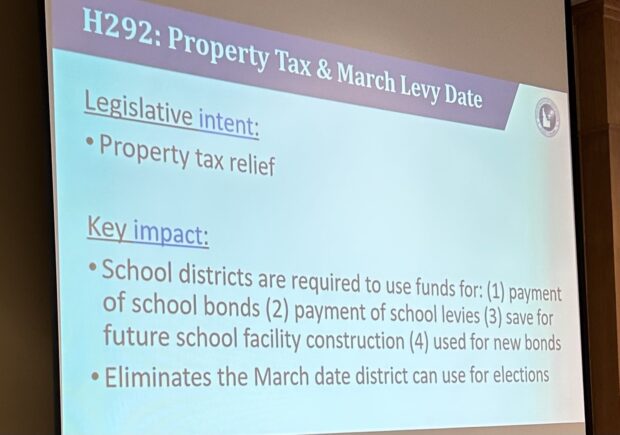
Reverting back to attendance-based funding
- Read more here.
Parental notification (HB 163):
- “It’s unfortunate that the word ‘empowering parents’ has taken on a negative connotation, because really how we empower parents to be a partner in their child’s education is by communicating with them and being transparent in what we do,” Critchfield said about the bill.
- She added that the bill codifies what many districts are already doing — communicating thoroughly with and opening doors to parents.
- Greg Wilson, Critchfield’s chief of staff, said the State Department of Education is working with stakeholder partners to develop three model policies that schools can use to adhere to the new law.
- School visits by a parent or guardian will have to be pre-approved. That way, school leaders can ensure the visits don’t interrupt testing or distract from learning.
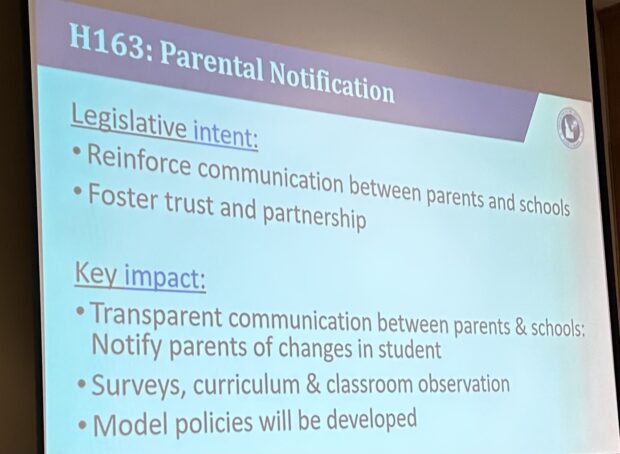
Seclusion and Restraint (HB 281)
- Parents and teachers around the state had concerns about seclusion and restraint practices, so last summer Critchfield began working on this legislation with Julie Mead, the SDE’s director of special education.
- “Students are dealing with more emotional and behavioral health issues than we’ve ever seen, and it’s not just high school students. It’s kindergarteners,” Critchfield said.
- A student in crisis combined with an undertrained teacher can lead to “disastrous” results. “So this is an attempt to call attention to it, but also to provide some support.”
- Ryan Cantrell, the chief deputy superintendent, clarified that seclusion and restrain can still be used — just not as a form of behavior management or punishment: “You’re using it as a last resort to keep kids and people safe.”
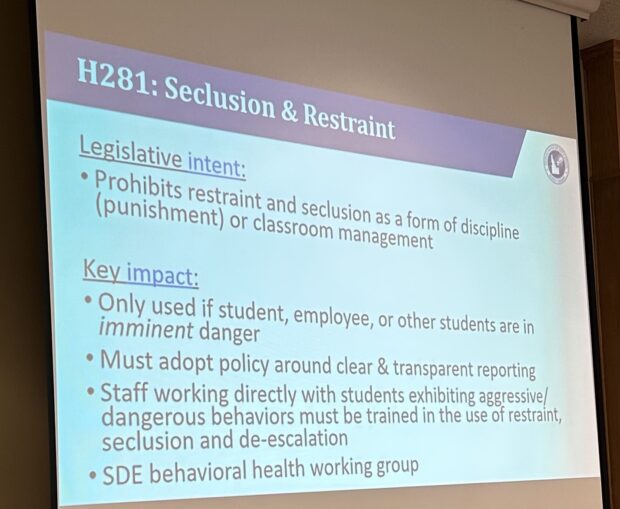
Charter Revolving Loans (Senate Bill 1043)
- “The door is not closed on the discussion about facilities for our traditional public schools. I don’t want that to be overlooked or lost in this conversation (about charter school funding),” Critchfield said. But solutions for traditional school funding will not happen “overnight.”
- This law will help provide some initial capital funding for charters.
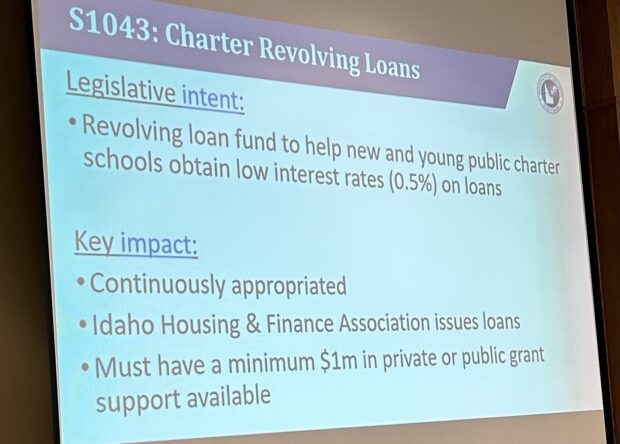
Financial literacy (HB 92):
- Critchfield touted the new graduation requirement as a bipartisan success: “No matter what flavor of political persuasion you were, this was universally accepted as something to help our kids be prepared.”
- Any certified teacher — whether their content area is English, math, or physical education — may teach this course, providing more flexibility for smaller districts.
- The 2024 graduating class will be the first that needs this requirement for a diploma. However, waivers are available for districts that need more time to implement the curricular change.
Career-ready students (HB 267):
- This allows for CTE funding for grades 7-12. Prior to this legislation, there wasn’t money available for seventh- and eighth-grade CTE programs.
- Critchfield said she wants to see districts be creative with their CTE programs and tailor them to their areas. For example, North Idaho lumber mills have critical staffing shortages. She hopes to work with 10 high schools to develop forestry programs, which could line students up for those jobs or to enter college forestry programs.
- The funds will become available July 1, and she encouraged districts to be ready to apply.
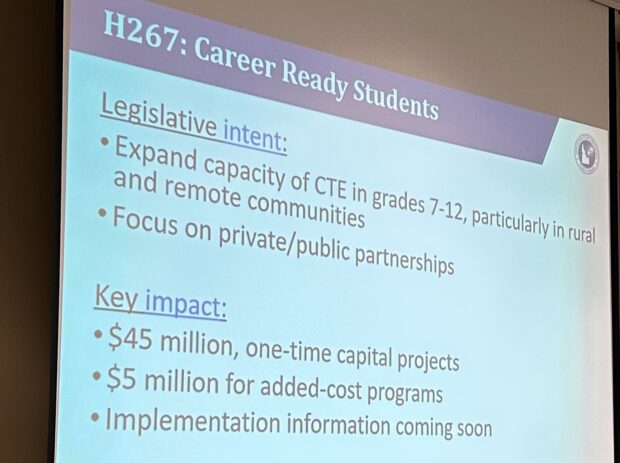
Idaho Launch Bill (SB 1167)
- It will be most important for counselors and college and career advisors to be filled in on this law, Critchfield said.
- The graduating class of 2024 will be the first with access to these funds.
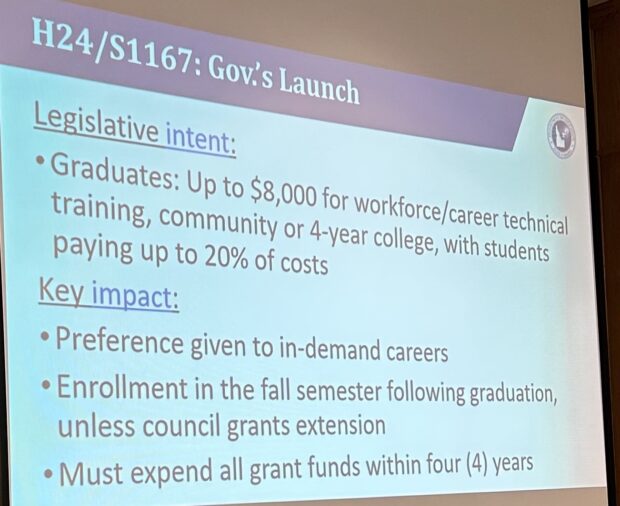
Empowering Parents (SB 1202)
- Critchfield is seeking applicants for a parent advisory panel, which will have a say in how the program’s funds will be used, though ultimately the State Board of Education will make that decision.
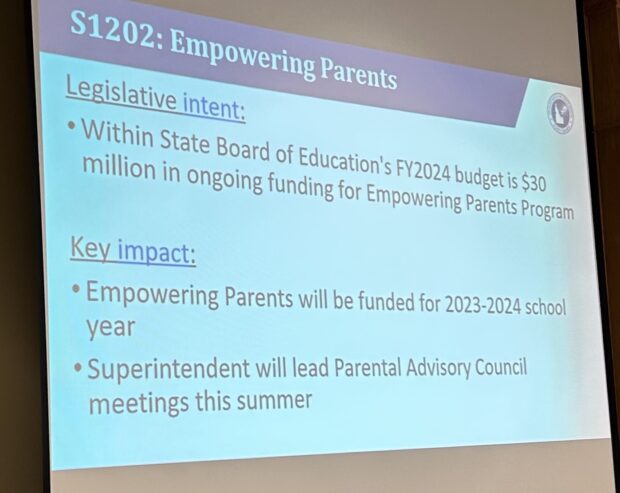
Teacher apprenticeships (SB 1069)
- This is primarily designed to help individuals, like paraprofessionals who don’t have bachelor’s degrees, to get the needed education and become teachers.
- It will be especially useful for rural districts, Cantrell said.
- “We are fully supportive of this and we’ve got to have every idea on the table to help our professions and keep and attract our educators,” Critchfield said.
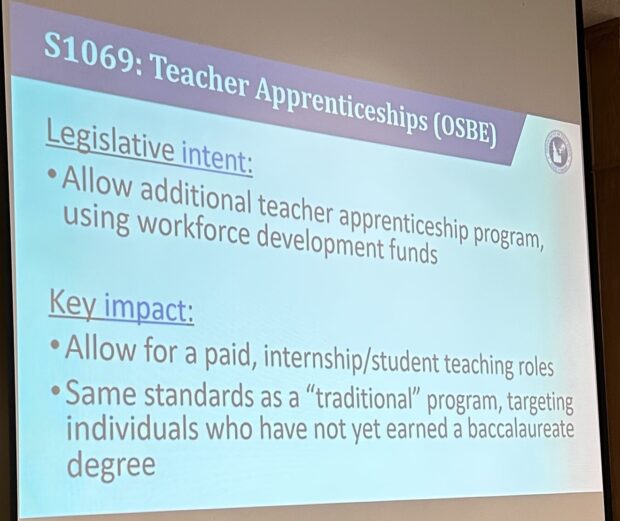
In God We Trust (HB 202)
- While schools are only required to display the national motto if a copy that meets specific standards is donated, Critchfield encouraged school leaders to be proactive and buy and post a sign in their entryways as a show of goodwill.
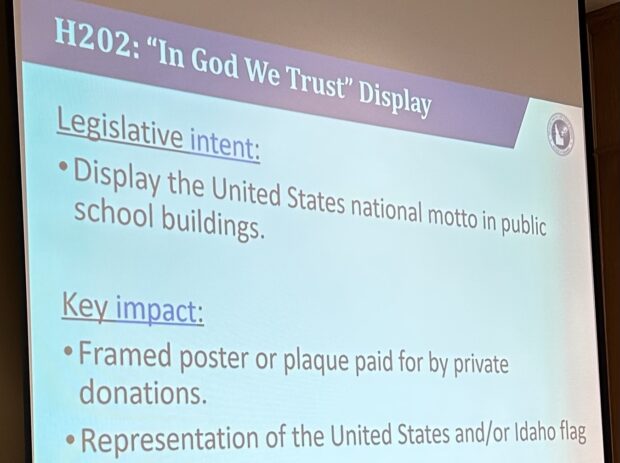
Open enrollment (SB 1125)
- Read more about this law and its impacts here.
Career exploration (HB 269)
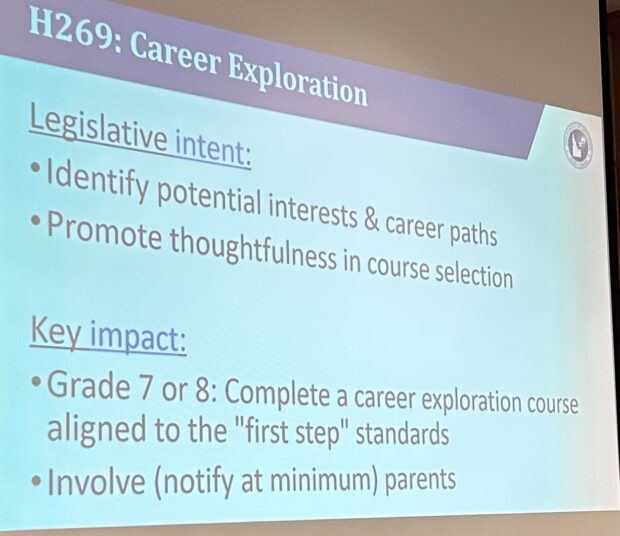
Trustee elections (HB 240)
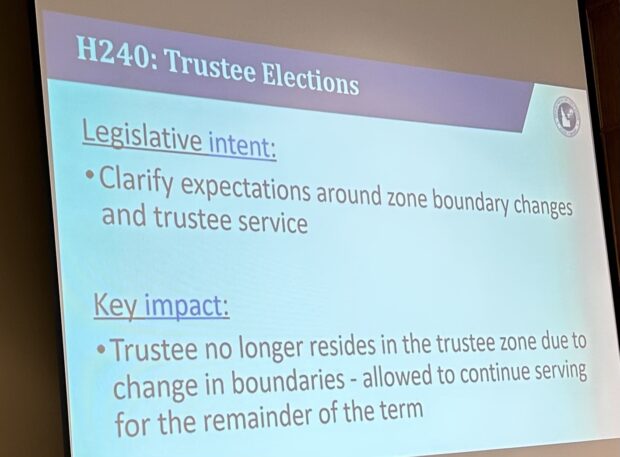
Public prayer (HB 182)
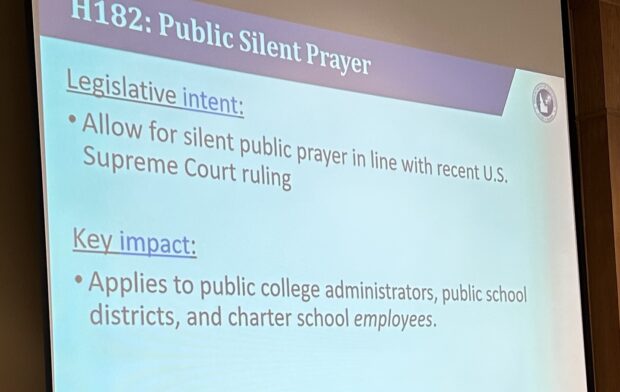
Abstinence definition (H 228)
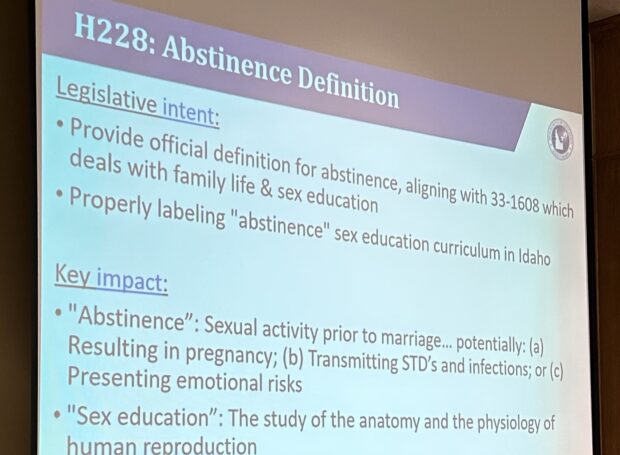
Bathrooms/facilities (SB 1100)
Read more here.
State dino (SB 1127)
The oryctodromeus is Idaho’s first state dinosaur.
Bills that didn’t pass … this time
A number of bills failed to become law this legislative session, but will likely resurface next year. They include:
- The school library bill (HB 314).
- Trustee training (HB 268).
- Driver’s training (HB 133).
- Teacher spending accounts (H 1153).
- Education savings account bills.
Further reading: What happened — and what didn’t happen — during the 2023 session; Analysis: A wild and unpredictable legislative session? Just wait ’til next year.
